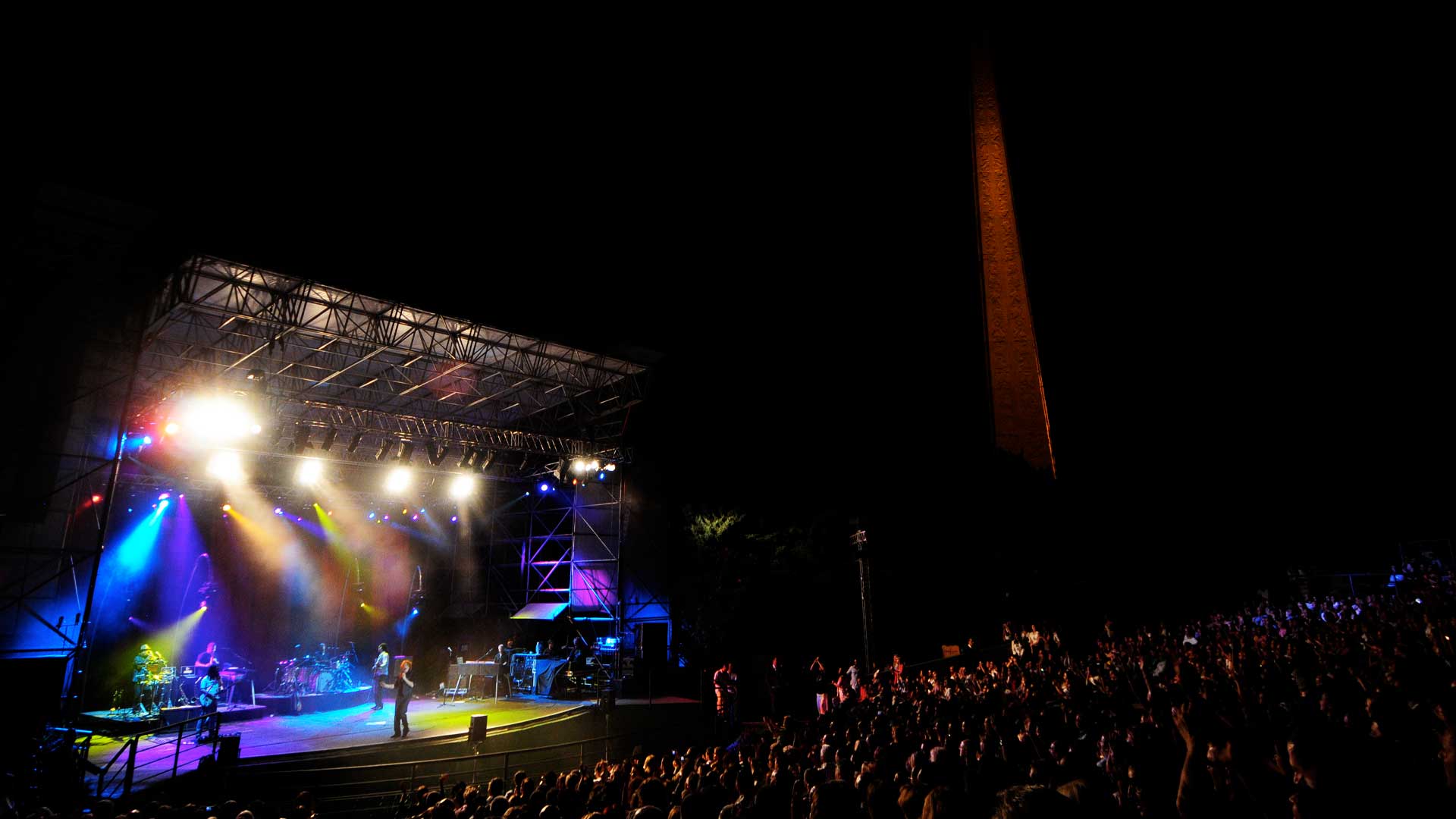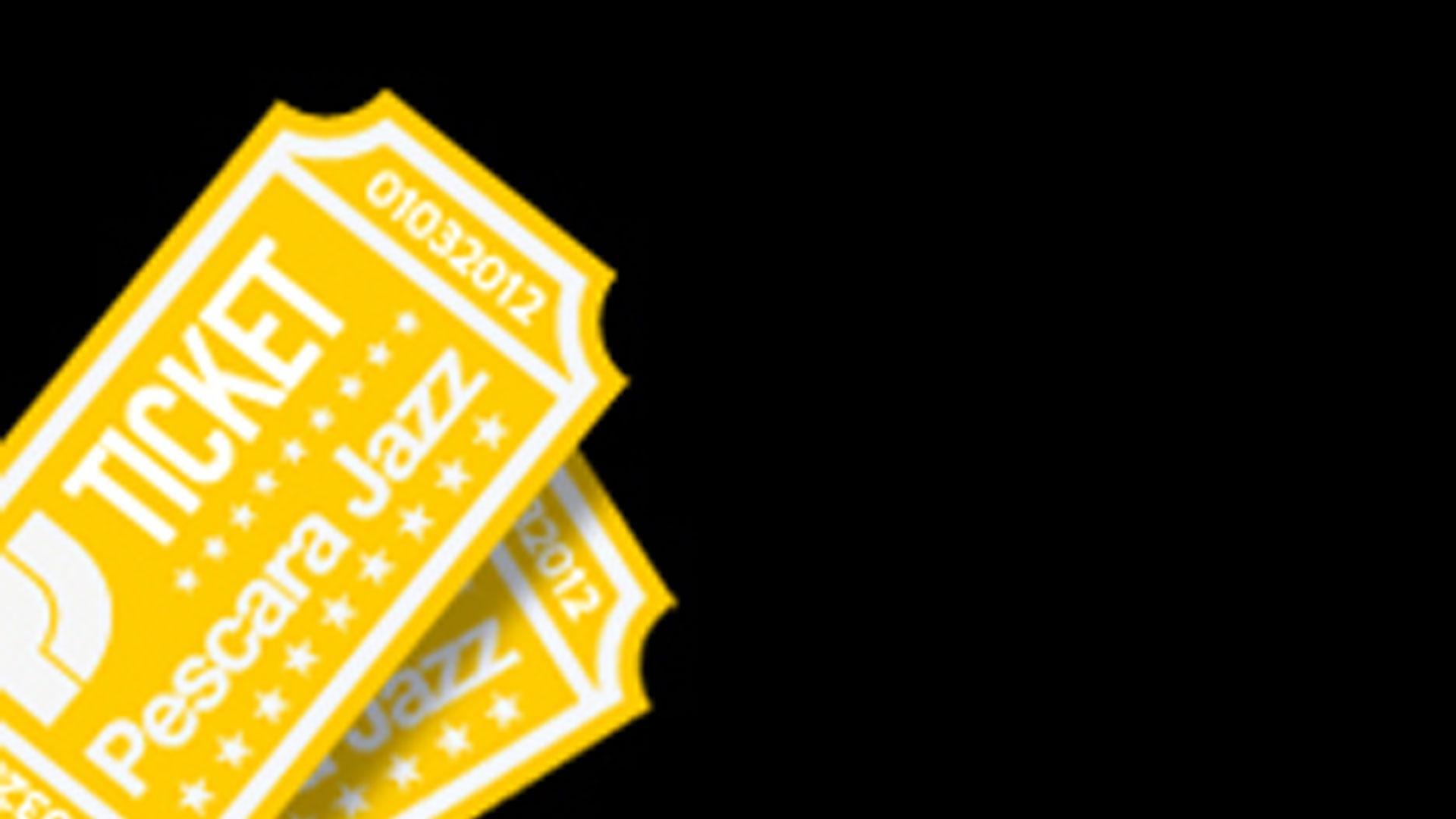IL FUTURO DEL JAZZ NELLA SUA STORIA – di Francesco Martinelli
Il jazz a Pescara ha una lunga storia: già prima del 1950 vengono registrate le prime attività del locale Hot Club, con audizioni e concerti di band locali; nel 1956 si comincia a parlare di festival, e dopo una serie di concerti internazionali nel gennaio 1968 arriva l’annuncio ufficiale della organizzazione del primo festival internazionale del jazz di Pescara, affidato dalla locale Azienda di Soggiorno a Lucio Fumo.
Si tratta di anni di profonda trasformazione del nostro paese e del ruolo sociale della musica jazz. Se a cavallo degli anni Cinquanta un movimento jazzistico sostanzialmente ispirato – come buona parte di quello europeo del momento – più dal raffinato cool di Lee Konitz, Stan Getz e Gerry Mulligan che dal bruciante hard-bop e meno ancora dall’emergente free – aveva portato il jazz nei teatri con l’emblematico festival di Sanremo, promosso a partire dal 1957 da un gruppo di appassionati milanesi in stretta collaborazione con la rivista Musica Jazz, dopo i movimenti studenteschi e pacifisti della fine degli anni Sessanta si sentì il bisogno di spalancare le porte a un nuovo pubblico, andando nelle piazze e nei parchi. Fu un modello poi messo in crisi dal suo stesso successo, testimoniato dalla sospensione di Umbria Jazz nella seconda metà degli anni Settanta con la sua ripresa successiva in termini radicalmente mutati.
In questo lungo arco di decenni, malgrado complicazioni e anche interruzioni dell’evento annuale, il Festival Jazz di Pescara ha rispecchiato e ispirato lo sviluppo del movimento jazzistico nazionale e internazionale.
L’edizione 2025 diretta da Angelo Valori, affermato compositore e direttore d’orchestra oltre che stimato didatta, mette il primo piano la ricca molteplicità del jazz di oggi, una musica in continua e profonda trasformazione che riesce a mantenere la sua rilevanza nel mondo attuale proprio grazie alla sua flessibilità e alla capacità di valorizzare voci diverse.
Se lo “spanish tinge” rappresenta una delle componenti essenziali del jazz fin dalle sue radici a New Orleans, la vocalist cubana Aymée Nuviola ne rappresenta l’esito contemporaneo. Cresciuta in una famiglia di musicisti, pianista classica, dopo gli esordi come cantante e la “scoperta” da parte di Gonzalo Rubalcaba con cui ha inciso dal vivo e in studio, la Nuviola è stata consacrata erede della celeberrima Celia Cruz quando l’ha interpretata nella serie TV a lei dedicata. Il suo gruppo celebra la storia della musica cubana reinterpretando in chiave moderna classici di una tradizione musicale che sempre più si rivela asse portante della cultura musicale africano-americana, seguendo il tema principale della sua carriera enunciato da album come “A Journey Through Cuban Music”.
Con la Lydian New Call Orchestra da 35 anni il docente e direttore Riccardo Brazzale porta avanti un lavoro di approfondimento e aggiornamento delle concezioni orchestrali nel jazz, ispirato soprattutto da George Russell e Gil Evans nella continua ricerca della dialettica creativa tra scrittura e improvvisazione attraverso brani originali e ripensamenti di classici del jazz moderno. L’organico della band, dalla caratteristica timbrica diversa rispetto alla big band swing, si è evoluto nel tempo mettendo via via in evidenza diverse generazioni di talenti del jazz italiano ed oggi in formazione rinnovata comprende la vocalist Gaia Mattiuzzi, i sassofonisti Manuel Caliumi, Giovanni Fochesato e Giulia Barba, Michele Tedesco e Glauco Benedetti agli ottoni, con una ritmica più ricca rispetto al passato e basata su Marcello Abate alla chitarra, Nazareno Caputo al vibrafono, Salvatore Maiore al violoncello, Federica Michisanti al contrabbasso e Bernardo Guerra alla batteria.
Nell’ultimo progetto di Gegè Telesforo, che già ha avuto la sua uscita discografica, si celebra con passione e il consueto garbo la “Big Mama Legacy” dedicata a uno dei club che hanno fatto la storia del jazz a Roma ritornando alle radici del blues e del funk con un gruppo di giovani e agguerriti musicisti in un programma di sicuro coinvolgimento per il pubblico.
Il sassofonista di Chicago Isaiah Collier con i suoi Chosen Few ha invece lo sguardo fermamente posato sul presente e sul futuro: partendo dal suono dell’ultimo Coltrane, quello di Interstellar Space, dalla filosofia di Sun Ra (impossibile non citare a questo punto lo storico concerto di Sun Ra a Pescara nel 1976) e dalle concezioni artistiche dell’AACM, Collier si presenta come ricercatore, militante, compositore: una personalità completa di cui il sassofono rappresenta solo un aspetto. Jazz che commenta il presente e guarda al futuro, politico e utopico, senza paura, come quello dei musicisti che fanno da stella polare a Collier.
Il pianista abruzzese (di Chieti) Tony Pancella è erede di una grande tradizione musicale familiare, soprattutto classica, ed ha iniziato da autodidatta ascoltando Oscar Peterson ed Erroll Garner dai dischi del padre. Tra i suoi maestri si segnalano Larry Willis e James Williams, con cui ha poi collaborato: il suo nuovo progetto è proprio dedicato agli eroi sconosciuti del piano jazz, quelli che per le complicazioni della loro vita personale o per pura sfortuna non sono entrati nell’empireo dei grandi del jazz ma meritano una riscoperta: un invito a un viaggio musicale tra le opere di Mary Lou Williams, Elmo Hope, Lennie Tristano, Duke Pearson, Phineas Newborn, Hampton Hawes, Hank Jones e gli stessi Willis e Williams.
Nel jazz di oggi il batterista Makaya McCraven – “scienziato del beat” come lui stesso si definisce – occupa un posto di grande rilievo per la sua capacità di sintetizzare la cultura del jazz mettendone in discussione i limiti: “la parola jazz” ha detto “è insufficiente per descrivere il fenomeno che abbiamo di fronte”. Combinando improvvisazioni dal vivo e reinvenzione del patrimonio tradizionale registrato su disco – Gil Scott-Heron, la Blue Note – McCraven riesce ad essere solidamente radicato nel passato e a marciare verso il futuro.
Divertente senza mai rinunciare alla serietà nell’esplorazione musicale il pianista Stefano Bollani presenta il suo nuovo quintetto in cui un trio di altissimo livello internazionale con Larry Grenadier al basso e Jeff Ballard alla batteria viene arricchito dalla fisarmonica di Vincent Peirani e dalle percussioni di Mauro Refosco, che aggiungono colori nuovi e inaspettati alla musica del popolare pianista milanese.
A 80 anni suonati il batterista panamense-americano Billy Cobham è una leggenda della fusion e del jazz elettrico a partire dalle sue storiche collaborazioni con Miles Davis e John McLaughlin. Frequentatore regolare del nostro paese presenta in questo nuovo progetto, di cui fanno parte musicisti italiani come il chitarrista Rocco Zifarelli, il trombettista Antonio Baldino e il trombonista Andrea Andreoli, in cui riprende il format del suo celebre sestetto con cui negli anni Settanta incise album epocali come “Spectrum” e “Crosswinds”: il gruppo presenta una scelta dei brani di quel periodo ma anche nuove composizioni di Cobham reinterpretate attraverso il sestetto.
“More Morricone” è la versione live di un progetto discografico in cui Ferruccio Spinetti al contrabbasso e Giovanni Ceccarelli al pianoforte – amici e collaboratori dagli anni Ottanta quando si incontrarono ai seminari jazz di Siena – assieme alla voce di Cristina Renzetti riprendono in chiave contemporanea, anche avvalendosi dell’elettronica e dei loop, una serie di temi del grane compositore italiano, affiancando alle melodie più conosciute un lavoro di ricerca nell’enorme produzione morriconiana con melodie estratte da colonne sonore assai meno note come “La Tarantola Dal Ventre Nero”, “Metello” e “Gli Avvoltoi Hanno Fame”.
Il trio del pianista polacco Marcin Wasilewski con Slawomir Kurkiewicz al contrabbasso e Michal
Miskiewicz alla batteria è uno dei gruppi contemporanei che sviluppano la grande tradizione del jazz polacco del dopoguerra, grazie anche alla loro collaborazione con lo storico trombettista Tomasz Stanko. Dal 2019 il trio collabora con un altro gigante dell’improvvisazione contemporanea, il sassofonista Joe Lovano, in un progetto ideato dal fondatore dell’ECM, il visionario Manfred Eicher: proprio a lui è dedicato Homage, il secondo album di questa collaborazione intercontinentale che vede convergere nel gusto dell’improvvisazione spontanea e della ricerca timbrica musicisti differenti per retroterra culturale e appartenenza generazionale. I quattro utilizzano materiali originali e nel loro recente album anche un brano del violinista Zbigniew Seifert, un significativo tributo a una figura guida del jazz polacco.
Il festival si chiude con un evento di grande rilievo: l’apertura del tour estivo di Shablo, assieme a Tormento e Joshua, visti assieme a lui a Sanremo, e a Mimì, vincitrice dell’ultima edizione di X Factor, alla sua consolle e a una band dal vivo, in un omaggio al jazz, matrice – nelle sue parole – “di tutte le sonorità della musica black contemporanea”. IL produttore e beatmaker italo-argentino, ormai da un ventennio presenza determinante della scena musicale italiana, è partito dall’hip-hop per divorare tanti altri generi musicali. Saranno gli idoli dei giovanissimi, a far riscoprire al jazz, nato nelle strade e nelle sale da ballo, la sua natura popolare? Lo scopriremo in un concerto di sicuro impatto.
———–
PESCARA JAZZ – THE FUTURE OF JAZZ IN ITS HISTORY
Jazz in Pescara has a long history: even before 1950 the first activities of the local Hot Club were recorded, with auditions and concerts of local bands; in 1956 discussions began about a festival, and after a series of international concerts in January 1968 the official announcement of the organization of the first international jazz festival of Pescara arrived, entrusted by the local Azienda di Soggiorno to Lucio Fumo.
Those were years of profound transformation of our country and of the social role of jazz music. At the turn of the 1950s a jazz movement substantially inspired – like a good part of the European one of the time – more by the refined cool of Lee Konitz, Stan Getz and Gerry Mulligan than by the burning hard-bop and even less by the emerging free – had brought jazz to the theaters with the emblematic Sanremo festival, promoted starting in 1957 by a group of Milanese enthusiasts in close collaboration with the magazine Musica Jazz. But after the student and pacifist movements of the late 1960s the need was felt to open the doors to a new audience, moving from the theaters to the squares and parks. This model was then put into crisis by its own success, demonstrated by the suspension of Umbria Jazz in the second half of the 1970s with its subsequent resumption in radically changed terms. In this long span of decades, despite complications and even interruptions of the annual event, the Pescara Jazz Festival has reflected and inspired the development of the national and international jazz movement.
The 2025 edition directed by Angelo Valori, an established composer and conductor as well as an esteemed teacher, highlights the rich variety of today’s jazz, a music in constant and profound transformation that manages to maintain its relevance in today’s world precisely thanks to its flexibility and ability to enhance different voices. If “Spanish tinge” represents one of the essential components of jazz since its roots in New Orleans, Cuban vocalist Aymée Nuviola represents its contemporary outcome. Raised in a family of musicians, a classical pianist, after her debut as a singer and her “discovery” by Gonzalo Rubalcaba with whom she recorded live and in the studio, Nuviola was consecrated as the heir of the very famous Celia Cruz when she played her in the TV series dedicated to her. His group celebrates the history of Cuban music by reinterpreting in a modern key classics of a musical tradition that is increasingly proving to be the backbone of African-American musical culture, following the main thread of his career stated by albums such as “A Journey Through Cuban Music”.
For 35 years the teacher and director Riccardo Brazzale with the Lydian New Call Orchestra has been carrying out his work of deepening and updating the orchestral concepts in jazz, inspired above all by George Russell and Gil Evans in the continuous search for the creative dialectic between writing and improvisation through original pieces and rethinking of modern jazz classics. The band’s lineup, with a different palette compared to the swing big band, has evolved over time gradually highlighting different generations of Italian jazz talents and today in a renewed lineup includes vocalist Gaia Mattiuzzi, saxophonists Manuel Caliumi, Giovanni Fochesato and Giulia Barba, Michele Tedesco and Glauco Benedetti on brass, with a richer rhythm than in the past based on Marcello Abate on guitar, Nazareno Caputo on vibraphone, Salvatore Maiore on cello, Federica Michisanti on double bass and Bernardo Guerra on drums.
In Gegè Telesforo’s latest project, which has already had its record release, the “Big Mama Legacy” is celebrated with passion and the usual grace, dedicated to one of the clubs that made the history of jazz in Rome, returning to the roots of blues and funk with a group of young and brilliant musicians in a program that is sure to touch the audience.
The Chicago saxophonist Isaiah Collier with his Chosen Few has his gaze firmly set on the present and the future: starting from the sound of the last Coltrane, that of Interstellar Space, from the philosophy of Sun Ra (impossible not to mention at this point the historic concert of Sun Ra in Pescara in 1976) and from the artistic concepts of the AACM, Collier presents himself as a researcher, militant, composer: a complete personality of which the saxophone represents only one aspect. Jazz that comments on the present and looks to the future, political and utopian, without fear, like that of the musicians who act as Collier’s North Star.
The pianist Tony Pancella from Abruzzo (Chieti) is the heir to a great family musical tradition, especially classical, and began as a self-taught player listening to Oscar Peterson and Erroll Garner from his father’s records. Among his teachers are Larry Willis and James Williams, with whom he later collaborated: his new project is dedicated to the unknown heroes of jazz piano, those who, due to complications in their personal lives or pure bad luck, have not entered the Olympus of jazz greats but deserve to be rediscovered: an invitation to a musical journey through the works of Mary Lou Williams, Elmo Hope, Lennie Tristano, Duke Pearson, Phineas Newborn, Hampton Hawes, Hank Jones as well of Willis and Williams themselves.
In today’s jazz, drummer Makaya McCraven – a “beat scientist” as he calls himself – occupies a place of great importance for his ability to synthesize jazz culture by questioning its limits: “the word jazz” he said “is insufficient to describe the phenomenon we are facing”. Combining live improvisations and reinventions of the traditional heritage recorded on disc – Gil Scott-Heron, Blue Note – McCraven manages to be solidly rooted in the past and march towards the future.
Entertaining without ever giving up seriousness in musical exploration, pianist Stefano Bollani presents his new quintet in which a trio of the highest international level with Larry Grenadier on bass and Jeff Ballard on drums is enriched by the accordion of Vincent Peirani and the percussion of Mauro Refosco, who add new and unexpected colours to the music of the popular Milanese pianist.
At 80 years Panamanian-American drummer Billy Cobham is a legend of fusion and electric jazz, starting with his historic collaborations with Miles Davis and John McLaughlin. A regular visitor to our country, he presents this new project, which includes Italian musicians such as guitarist Rocco Zifarelli, trumpeter Antonio Baldino and trombonist Andrea Andreoli, in which he takes up the format of his famous sextet with which he recorded epochal albums such as “Spectrum” and “Crosswinds” in the Seventies: the group presents a selection of songs from that period but also new compositions by Cobham reinterpreted through the sextet.
“More Morricone” is the live version of a recording project in which Ferruccio Spinetti on double bass and Giovanni Ceccarelli on piano – friends and collaborators since the 1980s when they met at the Siena jazz seminars – together with the voice of Cristina Renzetti, take up a series of themes by the great Italian composer in a contemporary key, also using electronics and loops, combining the best-known melodies with research into Morricone’s enormous production with melodies taken from lesser-known soundtracks such as “La Tarantola Dal Ventre Nero”, “Metello” and “Gli Avvoltoi Hanno Fame”.
The trio of Polish pianist Marcin Wasilewski with Slawomir Kurkiewicz on double bass and Michal Miskiewicz on drums is one of the contemporary groups that develop the great tradition of post-war Polish jazz, thanks also to their collaboration with the historic trumpeter Tomasz Stanko. Since 2019, the trio has been collaborating with another giant of contemporary improvisation, saxophonist Joe Lovano, in a project conceived by the founder of ECM, the visionary Manfred Eicher: Homage, the second album of this intercontinental collaboration that sees different musicians of different cultural backgrounds and generations converge in the taste for spontaneous improvisation and timbre research. The four use original materials and in their recent album also a piece by violinist Zbigniew Seifert, a significant tribute to a leading figure of Polish jazz.
The festival closes with an event of great relevance: the opening of the summer tour of Shablo, together with Tormento and Joshua, seen with him at Sanremo, and Mimì, winner of the latest edition of X Factor, at his console and a live band, in a tribute to jazz, the matrix – in his words – “of all the sounds of contemporary black music”. The Italian-Argentine producer and beatmaker, a key presence on the Italian music scene for over twenty years, started with hip-hop to devour many other musical genres. Will the idols of the very young help jazz, born in the streets and in dance halls, rediscover its popular nature? We will find out in a concert that is sure to have an impact.




